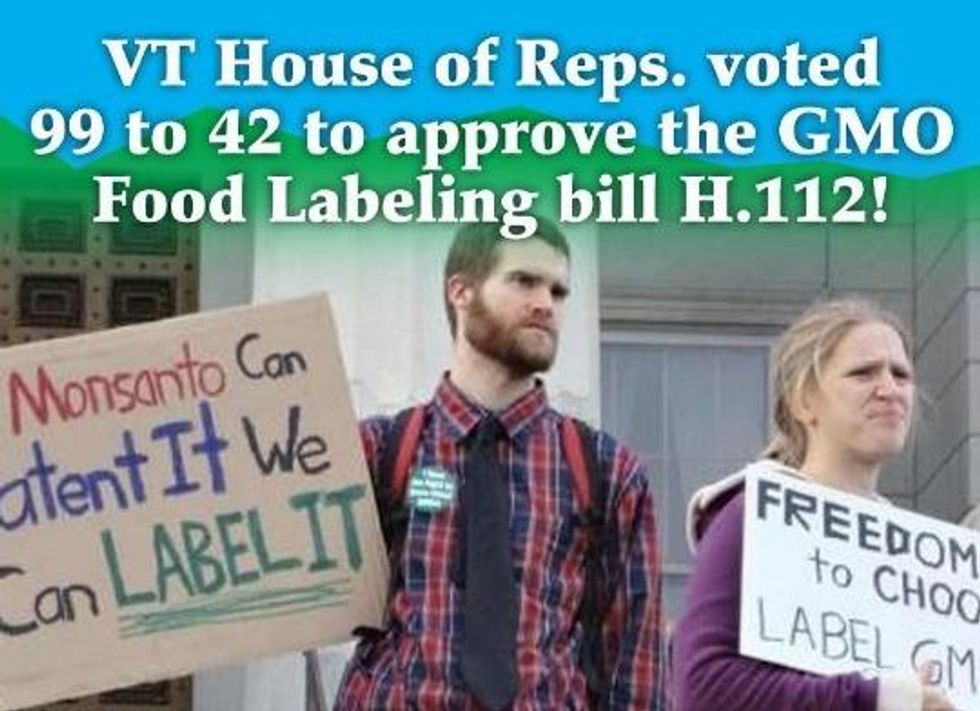'Five-Alarm Threat to Our Food Supply': Monsanto-Bayer Merger Advances
Chemical and GMO giants agree on takeover offer worth $66 billion; mega-merger to be reviewed by antitrust agencies worldwide
Monsanto accepted Bayer's $66 billion takeover offer--the largest all-cash deal ever--on Wednesday morning.
While anti-trust agencies around the world review the proposed mega-merger, environmental and consumer advocates roundly condemned the creation of what will be the largest pesticide and GMO corporation in the world.
"This new mega corporation would be the world's biggest seed maker and pesticide company, defying important antitrust protections and giving it unacceptable control over critical aspects of our food supply--undermining consumer choice and the freedom and stability of farmers worldwide," said Anne Isakowitsch, head of international corporate watchdog SumOfUs.
"[...] these megadeals are being made to benefit the corporate boardrooms at the expense of family farmers, ranchers, consumers and rural economies."
--Andrew Johnson, National Farmers Union
"The merger of Bayer and Monsanto should make the connection between Big Pharma, Big Biotech, and Big Food all the more apparent to consumers," said Ronnie Cummins, director of the Organic Consumers Association (OCA), in an email to Common Dreams.
"This may be a move to take pressure off the manufacturer of glyphosate, the most profitable pesticide in the world," Cummins added. "But it really doesn't matter who manufactures or sells glyphosate, or any other dangerous chemical. The damage to human health and the environment remains the same, as does our commitment to getting these chemicals out of our food system."
The merger between the two chemical behemoths has been long anticipated, and antitrust experts and environmental groups have been warning against the takeover for months.
A legal opinion by two former Justice Department officials released in August decried the merger as "a five-alarm threat to our food supply and to farmers around the world."
"[T]he antitrust enforcers must not allow this merger to proceed," the officials said.
Thanks to widespread protests and organizing from groups such as the National Farmers Union, next week the Senate Judiciary Committee is set to review the recent spate of consolidation--including deals such as Dow-Dupont and ChemChina-Syngenta--within the biotech industry.
"We are pleased that next week the Senate Judiciary Committee will be reviewing the alarming trend of consolidation in agriculture that has led to less competition, stifled innovation, higher prices and job loss in rural America," said National Farmers Union president Andrew Johnson. "We underscore the importance that all mergers, including this recent Bayer/Monsanto deal, be put under the magnifying glass of the committee and the U.S. Department of Justice."
"Wars were fought, lives lost, nations carved into holy lands [...] while Bayer and Monsanto sold chemicals as bombs and poisons and their brothers provided the loans to buy those bombs."
--Dr. Vandana Shiva
"We will continue to express concern that these megadeals are being made to benefit the corporate boardrooms at the expense of family farmers, ranchers, consumers, and rural economies," Johnson said.
Meanwhile, Sydney Peace Prize-winning environmental activist Dr. Vandana Shiva recently explored Bayer and Monsanto's longstanding relationship and dark history--pointing out that they worked together as chemical weapons manufacturers and war profiteers during several of the 20th century's bloodiest conflicts:
Monsanto and Bayer have a long history. They made explosives and lethally poisonous gases using shared technologies and sold them to both sides in the two world wars. The same war chemicals were bought by the Allied and Axis powers, from the same manufacturers, with money borrowed from the same bank.
MoBay [Monsanto and Bayer] supplied ingredients for Agent Orange in the Vietnam War. Around 20 million gallons of MoBay defoliants and herbicides were sprayed over South Vietnam. Children are still being born with birth defects, adults have chronic illnesses and cancers, due to their exposure to MoBay's chemicals. Monsanto and Bayer's cross-licensed Agent Orange resistance has also been cross-developed for decades. Wars were fought, lives lost, nations carved into holy lands--with artificial boundaries that suit colonization and resource grab--while Bayer and Monsanto sold chemicals as bombs and poisons and their brothers provided the loans to buy those bombs.
"The Farben family chemical cartel [that includes Bayer and Monsanto] was responsible for exterminating people in concentration camps," adds Shiva. "It embodies a century of ecocide and genocide, carried out in the name of scientific experimentation and innovation."
"Today, the poison cartel is wearing [genetic engineering] clothes and citing the mantra of 'innovation' ad nauseam. Hitler's concentration camps were an 'innovation' in killing," Shiva writes, "and almost a century later, the Farben family is carrying out the same extermination--silently, globally, and efficiently."


